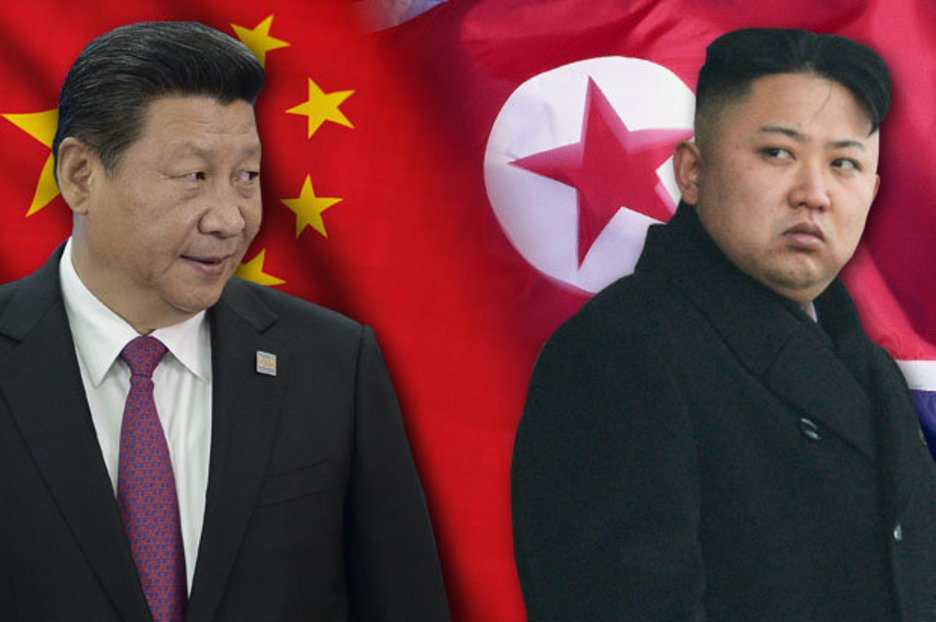AFP photo
By
Tom Arms
China is at a political crossroads with a nuclear-tipped Mack truck driven by a suicidal North Korean juvenile threatening to plough into its side with disastrous consequences for Beijing and the rest of the world.
President Xi Jinping can avoid the crash. It is not inevitable. But to do so requires a major change of direction in Chinese foreign policy—with some help from America.
Korea’s 38th Parallel is the Asian relic of the Cold War. It is also a highly visible and symbolic border which determines whether China or the United States is the major 21st century power in the Asia-Pacific region.
It was China that saved North Korea from defeat at the hands of the American-led UN forces in the early 1950s. It was China that signed a mutual defence treaty with North Korea in 1961 and it is China that provides the food and energy that enables the hereditary communist country to continue oppressing its 25 million citizens and threatening the world with nuclear holocaust.
Why? Not because of any love for Kim Jong-un or his ancestors or because North Korea is communist.
China supports North Korea because it knows that without Chinese support the Kim family business would collapse and American troops would—it believes– move from the 38th Parallel to the banks of the Yalu River and the border with China. This would be a major loss of face for Beijing and be a major blow to its bid for Asian dominance.
Chinese communism has its roots in the battle against Western Imperialism and American post-war hegemony is seen as its logical extension and the network of American military alliances and trade agreements is viewed as a thinly veiled attempt to contain the Chinese dragon.
“Asia for the Asians,” President Xi has repeatedly said. Of course an Asia for the Asians would be an Asia dominated by Asia’s most populous, prosperous and militarily powerful country—China.
Chinese support for North Korea was logical in the 50s, 60s and even the 70s when China pursued an extreme form isolationist communist. But when Deng Xiaoping shifted China onto the capitalist road the Chinese and North Korean routes began to diverge.
China now has a major stake in the maintenance of the present world order. For a start, the United States owes Beijing more than a trillion dollars. In Beijing’s eyes, American has become “too big to fail.”
But at the same time its history has left it tied to a legacy of anti-Americanism and propping up North Korea is viewed inside and outside of China as an integral part of that policy.
Of course, successive American administrations have made it difficult for Beijing to shift from its anti-American stand. Washington’s various alliances since 1949 have indeed been a clear attempt to contain China in the same way that America’s policies in Europe were an attempt to contain the Soviet Union. And as for Obama’s proposed Trans Pacific Partnership, well, Chinese exclusion only confirmed Beijing’s views.
President Xi can stop the crash. He can tighten the squeeze by refusing food and energy supplies to North Korea. He could even renege on the 1961 Mutual Defence Treaty as it contains a clause which commits both parties to pursue policies which maintain peace and security on the Korean Peninsula, which North Korea is clearly failing to do.
But to make the right choice the Chinese leader wants Washington to share power with Beijing in the Asia Pacific. The US has refused to show willingness to do so, and Donald Trump less likely than his predecessors to be willing to do so.
It is clear that Pyongyang and Washington are indulging in dangerous brinkmanship. So are Beijing and Washington.
Tom Arms is the editor of LookAheadnews.com. Sign up now for the weekly diary of world news events.



Again an anxiety-filled write up so relevant at present as the world heads towards a possible clash of dangerous ego...perhaps the unknown power stops the parties ...in deadly confrontation.